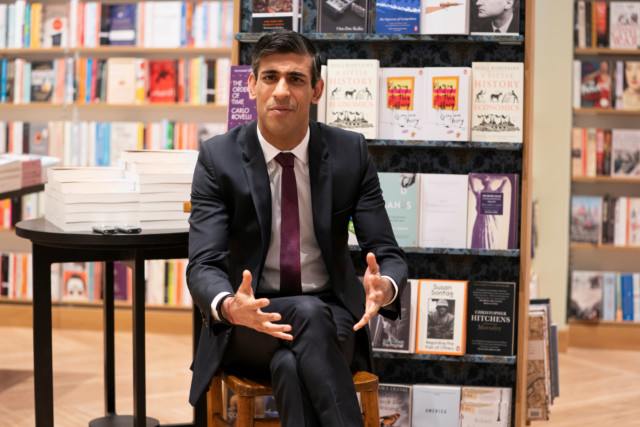CHANCELLOR Rishi Sunak is expected to unveil his Winter Economy Plan this afternoon – but why has he cancelled the Autumn Budget?
The government is facing mounting pressure to help secure the economy and protect jobs following the coronavirus crisis.
It comes as the furlough scheme is set to end on October 31, with employers and trade unions warning that over a million jobs could be at risk unless new support measures are introduced.
Mr Sunak will update MPs on his plan to “continue protecting jobs” this afternoon as part of his Winter Economy Plan.
The Chancellor could announce an alternative to the furlough scheme although this has yet to be confirmed.
Why has the Autumn Budget 2020 been cancelled?
The next budget was due to be delivered by the Chancellor this autumn but a specific date wasn’t confirmed.
However, Mr Sunak confirmed the Autumn Budget has now been cancelled – but he’ll instead update MPs on plans “to continue protecting jobs” today at 12.30pm.
A statement from the Treasury said: “As we heard this week, now is not the right time to outline long-term plans – people want to see us focused on the here and now.
“So we are confirming today that there will be no Budget this autumn.”
It follows a “mini-budget” which the Chancellor unveiled in the House of Commons on July 8.
He revealed measures like the Eat Out to Help Out scheme and a cut to Stamp Duty.
Mr Sunak delivered his first budget as Chancellor on March 11.
That one was a delayed Budget, originally meant to be delievered in November 2019.
The former Chancellor Sajid Javid decided to delay it because of December’s general election.

What was in the last budget?
In Mr Sunak’s July “mini-budget” there was support for people financially and a boost for the economy. That included:
- Eat Out to Help Out
The scheme offering half price meals out has encouraged people to head to restaurants and cages across the country.
- Stamp duty holiday
Homebuyers will benefit from the tax break on properties worth under £500,000 until March 31 2021.
- VAT slashed
A sales tax cut on eating out and other activities is expected to save Brits £160 per year.
Mr Sunak’s budget in March 2020 was the biggest Treasury splurge in 65 years, and came just two weeks before the country entered lockdown.
Here’s a round-up of the key policies announced:
- The coronavirus rescue plan
The chancellor’s headline policy was a £30billion coronavirus rescue plan.
This included a shake-up of sick pay and huge tax cuts to help businesses.
- Changes to universal credit
Mr Sunak also announced significant changes to Universal Credit and the benefits system.
From October 2021, those on Universal Credit who take out an advance payment will be able to pay it back over two years.
The maximum amount that can be taken off your benefits to pay back advance loans was also reduced from 30 per cent to 25 per cent.
- Fuel duty freeze
The Chancellor froze fuel duty for the tenth year in a row.
Mr Sunak cancelled a scheduled 2p-a-litre tax rise at the pumps due in April in a move that pleased motorists.
- Business rates discount
Pubs were helped with a business rates discount soaring from £1,000 to £5,000.
The chancellor also confirmed that a planned rise in beer duty was scrapped.
He said: “Because of decisions I’ve taken elsewhere in the Budget, I am also freezing duties for cider and wine drinkers as well.”
Why isn’t it called the Autumn Statement any more?
The Autumn Statement was scrapped by Philip Hammond in 2016.
At the recommendation of the Institute for Fiscal Studies (IFS), there is now a Spring Statement instead, with the Budget presented later in the year.
The government has said that changing the tax system once a year, rather than twice, will lead to greater financial stability.
The General Election in 2019 and the coronavirus pandemic have disrupted this planned schedule. But the next budget is expected to take place in October.
The latest bailout plan comes as confirmed new coronavirus cases soared above 6,000 today — the highest daily number since May 1.
Boris Johnson has admitted a UK second wave is inevitable, and yesterday announced new moves to try and curb the spread.
Here’s what happened when Mr Sunak unveiled his emergency coronavirus statement earlier in the year.








